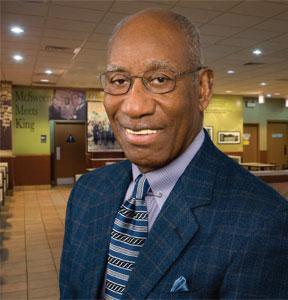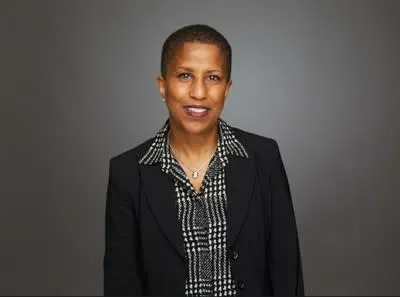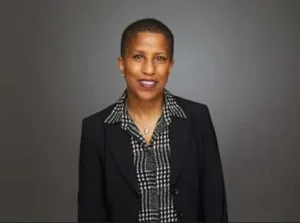Every year since our founding six years ago, we have recognized Wisconsin’s most influential Black and Latino leaders. In 2020, we extended that recognition to our Native American and Asian American brothers and sisters. These lists have become the most anticipated thing we do. Every year, I’ve intended these lists to highlight the beauty of the diversity across our state. I want kids here in Wisconsin to see role models of people who are succeeding, to know that it’s possible for African Americans and Latinos to achieve great things here.
Every year, people tell me we’ll run out of people to recognize. And every year, after we publish our list, I get emails and texts with more names: why did you leave out this person, how did you miss that person. And every year it becomes clear: there are more people of every ethnicity in Wisconsin doing the real work than we could ever recognize.
This week we shine a statewide spotlight on the dedicated leaders of Wisconsin’s Indigenous communities. The people we highlight this week are elected leaders, business leaders, community leaders, doing difficult, important work, often in the face of discrimination and literally generations of oppression.
And there will be more — later this year, we will publish new editions of our lists of the most powerful Black, Asian American and Latino leaders.
We are also aware that this list, like every other, is not comprehensive. There are, without a doubt, more than 39 influential Native American leaders doing good work in Wisconsin. We hope you will let us know about people in your community who we can include on future lists. For now, though, we just want to introduce you to a few of the people doing the work, often behind the scenes and without the accolades, across Wisconsin.
You might know a few of these names, but there’s a good chance that most of them will be new to you. I urge you to get to know them. Reach out to those living and working in your communities. Learn from them, network, create partnerships. And spread the word — let others in your network know that we have people of all ethnicities living and working across Wisconsin to make this state a good and prosperous place for all.
Henry Sanders, JrCEO, 365 Media FoundationPublisher, Madison365 and FoxValley365
Brigetta F. Miller is an associate professor of music at the Lawrence University Conservatory of Music in Appleton, currently teaching courses in both Music Education and Ethnic Studies. Professor Miller is an enrolled member of the Stockbridge-Munsee (Mohican) Nation and a descendant of the Menominee Nation in Wisconsin. She supervises undergraduate pre-service teachers in area schools and enjoys integrating inclusive best practices into all of her coursework within the liberal arts and sciences context. She also serves as a faculty advisor for LUNA (Lawrence University Native Americans), a student organization focused on empowering and supporting Indigenous students to successfully navigate the college experience. She has also worked as a writing instructor and member of the Academic Steering Committee for the College Horizons Scholars Program based in New Mexico, an innovative academic success program designed to address retention and bolster the number of Native American, Alaskan Native, or Native Hawaiian students who enter and stay in the Ph.D. pathway. She earned a Bachelor of Music in Music Education from Lawrence University, a Masters of Music Education with a Kodaly emphasis from Silver Lake College, with a doctorate in progress. She remains in demand as a speaker of diversity-related issues at state, national, and international conferences.
Adrienne Thunder is director of the Hoocąk Waaziija Haci Language Division for the Ho-Chunk Nation, a role she’s held since 2016. The Language Division is dedicated to ensuring Hoocąk remains a “living language” through a language academy, language apprenticeship programs and a Hoocąk-language child care center. Prior to stepping into the directorship of the language division, Adrienne served for four years as the executive director of the Nation’s education department and 12 years as an academic advisor at UW-Madison. She holds a master’s degree in educational administration from UW-Madison, where she also expects to be granted a doctoral degree this year.
Tina Van Zile of Crandon is the environmental director of the Sokaogon Chippewa Community. In 2020, she was elected president of the Wisconsin Tribal Conservation Advisory Council (WTCAC), an association that provides a forum for the 11 Native American Tribes in Wisconsin to identify and solve natural resource issues on Tribal lands, and gives a voice to the Tribes on important conservation issues at the state and national levels. Tina has served on the Council as the Sokaogon-Mole Lake representative since 2001.
Jeff House is president and CEO of Oneida ESC Group, a family of companies, owned by the Oneida Nation of Wisconsin, that delivers customer-focused engineering, science, and construction services worldwide. Jeff started his career at the Walt Disney Company and became the Assistant Marketing Director for Oneida Bingo & Casino. He pursued financial planning with the Oneida Trust Department and Oneida Nation Trust Funds, and in 2016 joined the management team at Oneida ESC Group LLC. He has a B.A. in Journalism from UW–Eau Claire.
Jon Greendeer is health and wellness coordinator for the Ho-Chunk Nation. He worked as a card dealer and musician, struggling with addiction, but has been sober for nearly 25 years. He went back to school at UW-Marathon County and then earned a bachelor’s degree from UW-Stevens Point in 2004. He was elected president of the Ho-Chunk Nation in 2011 and in 2012 delivered the State of the Tribes Address to the State Legislature. In 2018 UW-SP honored him as a Distinguished Alumnus.
Justine Rufus is Rural Coordinator with Wisconsin Coalition Against Sexual Assault, and Co-Chair of the Wisconsin Department of Justice’s Murdered and Missing Indigenous Women Task Force. She previously served as Bayfield County Outreach Program Coordinator for the Center Against Sexual and Domestic Abuse. She has been working in the human services field for more than 12 years. In that time, she has helped establish two non-profit organizations, rewrite domestic violence codes for the Red Cliff tribe, as well as direct the Red Cliff Family Violence Program.
Skye Alloway is Language and Culture Manager of the Forest County Potawatomi Museum, Cultural Center and Library, and co-chair of the Wisconsin Department of Justice’s Murdered and Missing Indigenous Women Task Force. She also serves as co-chair of the Chancellor’s Commission on the Ancestors Buried Below Us at UW-Stevens Point, which will partner with UW-Stevens Point administration to establish a Cultural Resource Management Plan with various tribal nations in the region and oversee the creation of a permanent memorial for the Indigenous ancestors buried under the campus. She is also on the boards of Wisconsin Conservation Voters and HIR Wellness.
Nathan Gordon is president of the board of Native American Tourism of Wisconsin, an organization that aims to promote tribal tourism and economic development, while highlighting the beauty, diversity and cultural dynamism of the 11 federally recognized tribes of Wisconsin. NATOW is composed of representatives from each tribe who meet bi-monthly to discuss and implement its strategic initiatives. As one of the largest tribal tourism organizations in the country, NATOW has grown to be a recognized force in Wisconsin at gatherings, festivals, and events. Gordon is also vice chair of the Red Cliff Band of Ojibwe.
Monique Tyndall is Director of Cultural Affairs for the Stockbridge-Munsee Band of Mohicans. Cultural Affairs is a newly established department that has consolidated the Library/Museum, Historic Preservation, and Language programs. Since 2005 she has served in various cultural heritage roles within her tribe. Including, establishing collections management practices for the Library/ Museum, assisting with NAGPRA claims, language and cultural education. Monique was recently awarded the Fellowship in Native American Collections Care at the Midwest Arts Conservation Center (2021). She holds a M.A. in Cultural Sustainability at Goucher College (2017). Recipient of the 2018 Rory Turner Prize for best capstone in Cultural Sustainability (2017). She holds a B.A. in Museum Studies from the Institute of American Indian Arts (2007). She has over 15 years of experience in cultural preservation through positions, internships, and fellowships at the Menominee Tribal Archives, College of Menominee Nation Verna Fowler Library Special Collections, Stockbridge-Munsee Community, Museum of Contemporary Native Arts, National Park Service, Smithsonian-National Museum of the American Indian, Midwest Art Conservation Center. Monique has received special acknowledgements in the book, Images of America: Langlade County (Arcadia Publishing, 2012). She has provided 10 years of cultural education for Bowman Performance Consulting in areas of programming, research, and evaluation with scientific rigor and cultural responsiveness. She contributed to the book, continuing the Journey to Reposition Culture & Cultural Context in Evaluation Theory & Practice (Information Age Publishing, 2015) regarding multi-jurisdictional Indigenous evaluation.
Dr. Heather Ann Moody is an associate professor of American Indian Studies at UW-Eau Claire, where she’s taught for nearly 15 years. She serves as the state chair of the American Indian Program Curriculum, the body that oversees implementation of Wisconsin Educational Act 31, which outlines American Indian requirements for curricula in K-12 and higher education. At UW-Eau Claire she teaches courses in American Indian history and culture with an emphasis on Wisconsin and Minnesota tribal nations, American Indian literature and film, and indigenous methods and research. She was recognized as a 2019 Outstanding Woman of Color in Education by UW System. She earned a bachelor’s degree in American Indian Studies from UW-Eau Claire, master’s degree from the University of Arizona and doctoral degree from in teaching and learning from University of Minnesota-Duluth. She also holds a certificate in museum studies and anthropology from UW-Milwaukee.
Melinda Young is health and wellness coordinator at Gookomis Endaad, the community based residential facility for the Lac du Flambeau Band of Lake Superior Chippewa, where she was interim director for five months last year. She took on this role after more than 20 years working in a variety of positions within the Lac du Flambeau government, mostly as the Tribal Historic Preservation Officer. She’s served on a number of tribal committees over the years and holds two governor appointed positions, on the Wisconsin Historic Preservation Review Board and Wisconsin Burial Sites Preservation Board. She earned a bachelor’s degree in American Indian Studies from UW-Eau Claire and master’s in Tribal Administration and Governance from UM-Duluth.
Dan Cornelius is a member of the Oneida Nation of Wisconsin and Outreach Specialist and Deputy Director of the Great Lakes Indigenous Law Center in the UW Law School. He is a 2009 alumnus of the Wisconsin Law School. For seven years Dan worked for the Intertribal Agriculture Council in partnership with the US Department of Agriculture. Dan’s work has focused on assisting Native Nations and their members with development of Native agriculture and food systems, promoting improved access to USDA programs, including conservation, value-added production, and infrastructure development, as well as expanding intertribal trade and commerce.
Edith Leoso the Tribal Historic Preservation Officer for the Bad River Band of Lake Superior Tribe of Chippewa in northern Wisconsin, and previously served two terms on the Bad River Tribal Council. She is known nationally as a resource on tribal historic preservation, appearing in video documentaries and news shows including on NPR’s All Things Considered.
David Grignon is Tribal Historic Preservation Officer for the Menominee Indian Tribe, and the Tribe’s Native American Grave Protection and Repatriation Act designate. Grignon’s knowledge of the nation’s history, geography and traditions has proved valuable in the effort to stop a massive open-pit mine from being dug along the banks of the Menominee River.
Marvin Defoe is an educator, teacher, birch bark canoe builder, and Red Cliff elder. He grew up in the Red Cliff community and is part of the sturgeon clan. Named Shingway Banase in Anishinaabe, he is passionate about maintenance and revitalization of the Ojibwe language. Marvin is past Vice Chair on the tribal council and has been the Tribal Historic Preservation Officer for four years.
Margaret Ellis is cofounder of Kenco Tribal Marketing, a full service marketing and procurement agency serving tribal business enterprises. She also owns apparel company Mirax, LLC. She also provides consulting services for organizations such as the National Indian Gaming Association, Native American Basketball Invitational Foundation, and the Oneida Nation of Wisconsin in the areas of event planning and business development, capital campaign, and Oneida language translation and outreach. She holds a B.S. in Business Administration from Haskell Indian Nations University, a M.A. in Global Indigenous Nation Studies from the University of Kansas, and is a candidate for her Ed.D in first Nations Education with a focus on Indegenous economy and small business education.
Brian Bisonette is Tribal Historic Preservation Officer for the Lac Courte Oreilles Band of Lake Superior Chippewa, and serves on the Sawyer County Board of Supervisors. A veteran of the US Army, he served two terms on the Tribal Council, including six years as secretary/treasurer.
Samantha Majhor (Dakota and Assiniboine descendant) is an Assistant Professor of English with a focus on Native American Literature at Marquette University. Her current research builds on her dissertation, “We are All Related: Contemporary Native American Literature and the Nonhuman Turn,” to explore the portrayal of natural and cultural materials like beaded dresses, houses, books, cars, and rivers in prose and poetry by Native writers. The project seeks to underscore long-held indigenous philosophies about material life and make visible the ways those concepts are both congruent with and divergent from recent theoretical turns toward materialism and object-oriented ontologies. She is also an advocate for Indigenous language revitalization efforts and a student of the Dakota language.
Jennifer K. Gauthier is a community development educator in Menominee County/Nation. Gauthier is involved with food sovereignty in Indigenous communities and supports local partners with strategic planning elements. She has spent the last six years at the University of Wisconsin Division of Extension taking Extension programming and resources and adapting them to fit the needs of the community. She was named one of UW-Madison’s Outstanding Women of color for 2021-22.
Kristina Stanley is founder and head chef of Abaaso, a plant-based wholesale and catering company turned consulting service. She is also program manager for I-Collective, a nationwide network of Indigenous chefs, seed-keepers, farmers and others working to preserve and celebrate ancestral traditions. She is project manager for the Gathering Basket, I-Collective’s online Indigenous community journal. A member of the Red Cliff Lake Superior Chippewa tribe, she is also an adjunct professor at Fox Valley Technical College in Appleton.
Dan Terrio is Diversity and Inclusion Manager for Milwaukee County. Dan presently leads the workforce development efforts for the county’s 4,000 employees and currently sits as the highest ranked Native American leader in Milwaukee County’s government. After growing up on the Stockbridge-Munsee Indian Reservation in North Central Wisconsin, he spent more than 20 years as an independent DEI and leadership trainer and consultant, giving over 7,500 keynote addresses/motivational presentations to high schools, businesses, leadership conferences and colleges in all 50 states. He is a nationally renowned and TED certified motivational speaker. He has bachelor’s and master’s degrees from UW-Green Bay and an executive certificate in diversity and inclusion from Cornell.
Marvin Defoe is an educator, teacher, birch bark canoe builder, and Red Cliff elder. He grew up in the Red Cliff community and is part of the sturgeon clan. Named Shingway Banase in Anishinaabe, he is passionate about maintenance and revitalization of the Ojibwe language. Marvin is past Vice Chair on the tribal council and has been the Tribal Historic Preservation Officer for four years.
Margaret Ellis is cofounder of Kenco Tribal Marketing, a full service marketing and procurement agency serving tribal business enterprises. She also owns apparel company Mirax, LLC. She also provides consulting services for organizations such as the National Indian Gaming Association, Native American Basketball Invitational Foundation, and the Oneida Nation of Wisconsin in the areas of event planning and business development, capital campaign, and Oneida language translation and outreach. She holds a B.S. in Business Administration from Haskell Indian Nations University, a M.A. in Global Indigenous Nation Studies from the University of Kansas, and is a candidate for her Ed.D in first Nations Education with a focus on Indegenous economy and small business education.
Brian Bisonette is Tribal Historic Preservation Officer for the Lac Courte Oreilles Band of Lake Superior Chippewa, and serves on the Sawyer County Board of Supervisors. A veteran of the US Army, he served two terms on the Tribal Council, including six years as secretary/treasurer.
Samantha Majhor (Dakota and Assiniboine descendant) is an Assistant Professor of English with a focus on Native American Literature at Marquette University. Her current research builds on her dissertation, “We are All Related: Contemporary Native American Literature and the Nonhuman Turn,” to explore the portrayal of natural and cultural materials like beaded dresses, houses, books, cars, and rivers in prose and poetry by Native writers. The project seeks to underscore long-held indigenous philosophies about material life and make visible the ways those concepts are both congruent with and divergent from recent theoretical turns toward materialism and object-oriented ontologies. She is also an advocate for Indigenous language revitalization efforts and a student of the Dakota language.
Jennifer K. Gauthier is a community development educator in Menominee County/Nation. Gauthier is involved with food sovereignty in Indigenous communities and supports local partners with strategic planning elements. She has spent the last six years at the University of Wisconsin Division of Extension taking Extension programming and resources and adapting them to fit the needs of the community. She was named one of UW-Madison’s Outstanding Women of color for 2021-22.
Kristina Stanley is founder and head chef of Abaaso, a plant-based wholesale and catering company turned consulting service. She is also program manager for I-Collective, a nationwide network of Indigenous chefs, seed-keepers, farmers and others working to preserve and celebrate ancestral traditions. She is project manager for the Gathering Basket, I-Collective’s online Indigenous community journal. A member of the Red Cliff Lake Superior Chippewa tribe, she is also an adjunct professor at Fox Valley Technical College in Appleton.
Dan Terrio is Diversity and Inclusion Manager for Milwaukee County. Dan presently leads the workforce development efforts for the county’s 4,000 employees and currently sits as the highest ranked Native American leader in Milwaukee County’s government. After growing up on the Stockbridge-Munsee Indian Reservation in North Central Wisconsin, he spent more than 20 years as an independent DEI and leadership trainer and consultant, giving over 7,500 keynote addresses/motivational presentations to high schools, businesses, leadership conferences and colleges in all 50 states. He is a nationally renowned and TED certified motivational speaker. He has bachelor’s and master’s degrees from UW-Green Bay and an executive certificate in diversity and inclusion from Cornell.
Elena Terry is the Executive Chef/Founder of Wild Bearies, an educational, community outreach nonprofit that strives to bring ancestral foods to communities in a nurturing and nourishing way. After having been a traditional foods cook, and worked in the restaurant industry for over a decade, Elena shifted her focus several years ago to community building as she merged her passions and focused on educating through indigenous foods. Elena is the Food and Culinary Program Coordinator for the Native American Food Sovereignty Alliance as well as in partnerships with the Intertribal Agriculture Council, Meskwaki Food Sovereignty Initiative and UW Horticulture Department.
William Nąąwącekǧize Quackenbush, Ho-Chunk Deer Clan Tribal Member, serves as the Tribal Historic Preservation Officer (THPO) and Cultural Resources Division Manager for the Ho-Chunk Nation. As the Ho-Chunk Nation Tribal Historian, Mr. Quackenbush has presented extensively on Ho-Chunk history and culture. In his role as the Ho-Chunk Nation THPO, Mr. Quackenbush consults regularly with the management team at Effigy Mounds National Monument.
Michael LaRonge is Tribal Historic Preservation Officer for the Forest County Potawatomi Community. He graduated from University of Wisconsin-La Crosse with a degree in archaeology in 1996 and obtained his Master’s degree in Industrial Archaeology from Michigan Technological University in 2001. He has worked for the Wisconsin Historical Society, a few private cultural resource firms, and the Lac du Flambeau Band of Lake Superior Chippewa.
Dr. Mark Powless is Our Ways Director at Indian Community School in Franklin, where his role is to ensure that Native culture is interwoven into all facets of the school’s programming. A member of the Oneida Nation, he has served the Native community as a psychological clinician, supervisor and consultant working closely with local community service providers in addition to VA programs and staff. In addition to his clinical experience, I am a lecturer at the University level and work with schools and community organizations on training and education programs throughout the state. He earned his Ph.D. in Psychology at Marquette University and is a licensed clinical psychologist in the State of Wisconsin. He is a member of Marquette University’s Council on Native American Affairs and a long-standing member of numerous psychology associations and societies.
Dr. Angela Fernandez is an Assistant Professor at the UW-Madison School of Nursing, and member of the campus Native American Environment, Health, and Community faculty cluster. A member of the Menominee Nation of Wisconsin, her research program is built on over two decades of combined national and international social work and public health research, practice, teaching, and service experience with Indigenous, Latinx, and other marginalized communities in inpatient and outpatient health care settings, academic settings, non-profit organizations, and the Peace Corps. As a clinician, she has worked with interprofessional teams in inpatient and outpatient care, and holds clinical social work licenses in the states of Wisconsin and Washington. As an instructor, she has taught courses on historical trauma and healing and critical social theories. As a prevention scientist, she examines the role of cultural practices and nature contact as protective factors in the prevention of chronic and co-occurring diseases (e.g. mental health, substance abuse, diabetes) among Indigenous peoples.
Jim Thunder is one of the few remaining native speakers of the Potawatomi language, and has dedicated years to preserving and revitalizing the language. He has created an online course that covers language basics with sound clips and in 2018 published “Wete Yathmownen, Real Stories: Potawatomi Oral History,” a collection of stories compiled and written by Thunder and his wife Mary Jane.
Dr. J P Leary (Cherokee/Delaware) serves as an Associate Professor in First Nations Studies, History, and Humanities, as a member of the graduate faculty in the Professional Program in Education, and as a faculty affiliate with the Education Center for First Nations Studies. He regularly teaches a variety of courses including Introduction to FNS: The Tribal World, American Indians in Film, Mohican Ethnohistory, First Nations and Education Policy, and the FNS Seminar. His primary research interests relate to curriculum policy, the history of education, and the representation and self-representation of Native people in education and popular culture. Dr. Leary is also the faculty advisor for Intertribal Student Council.
Wayne Valliere is an Ojibwe language and culture teacher at the Lac du Flambeau Public School, and one of only a handful of Native birch bark canoe builders today in the United States. Valliere has a vast artistic repertoire: beadwork, quillwork, regalia, drums, basketry, pipes, lodges, weaponry, hunting tools, and more. He is a respected singer and storyteller, but is best known as a birch bark canoe builder, a craft he learned alongside his brother Leon. He was recognized for this work in 2015 with the Jennifer Easton Community Spirit Award from the First Peoples Fund, and a 2017 Mentor Artist Fellowship from Native Arts & Cultures Foundation.
Jo Anne House is Chief Counsel for the Oneida Nation. She graduated from the University of Wisconsin Law School in 1993 and went on to earn a PhD from Walden University in public policy and administration with a focus on deliberative democracy within Tribal governments with a goal of developing tool that can be used by Tribal governments to improve information, discussion and decision making at membership meetings.
Who’d we miss? Email us at news@madison365.org to let us know about the Native American leaders doing good work in your community.







